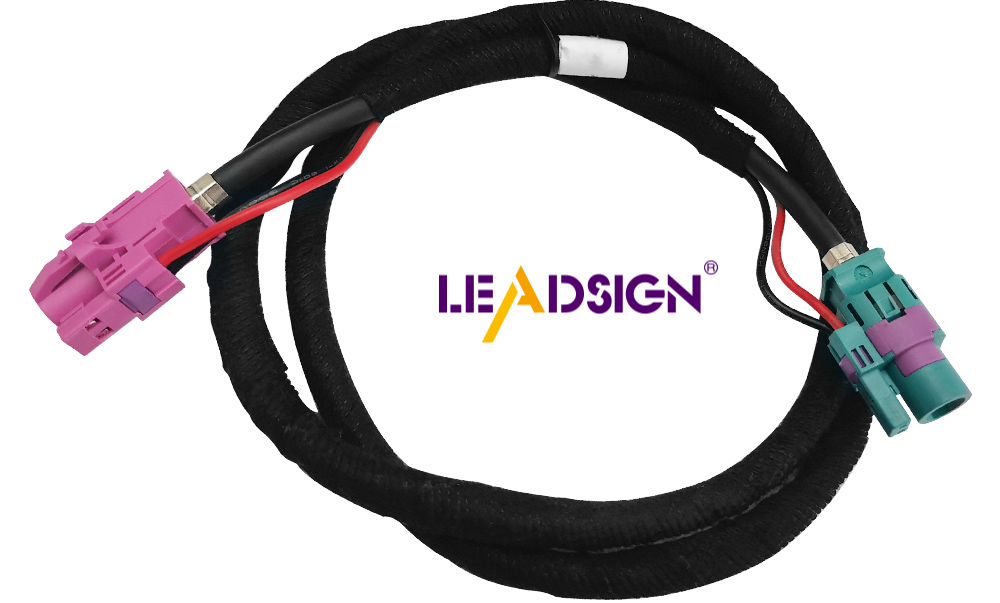Guide to Solving Automotive Wire Issues with HSD GPS Cable

Automotive wire issues can lead to significant problems. Addressing them ensures vehicles remain safe and reliable. HSD GPS cables play a crucial role in modern cars by facilitating steady data transmission. A systematic approach quickly identifies and resolves issues. Understanding auto wire components enhances vehicle performance.
Finding the Problem
Usual Signs of Car Wire Issues
GPS Problems
When car wires have issues, GPS might act up. The screen could freeze or show wrong places. Sometimes, it can't find satellites. These signs mean there might be wire troubles.
Unstable Connections
Unstable connections hit many car systems. Links can drop suddenly. Music might stop playing. Maps may not work right. These problems often mean bad wiring.
First Checks
Look Over the Wires
Start by looking at the wires closely. See if they look worn or broken. Check for wires that are torn or metal showing. Make sure plugs are tight. Use grease to stop short circuits. This keeps connections working well.
Simple System Tests
Do simple tests on the car's systems. Turn on GPS and watch how it works. Look at other electronics for odd behavior. Make sure everything works right. These tests help find problem spots.
Testing and Checking Parts
Battery and Alternator
Checking Voltage Levels
First, check the battery's voltage. Use a multimeter for this. A good battery shows about 12.6 volts when off. When on, the alternator should raise it to 13.7-14.7 volts. Low voltage means a weak battery or bad alternator. Regular checks stop sudden wire problems.
Making Sure Connections are Good
Look at the battery and alternator connections. Loose or rusty ends cause trouble. Clean them with a wire brush. Make sure each is tight and safe. Good connections keep power flowing well.
Fuses and Relays
Using a Fuse Tester
Check fuses with a fuse tester in the car. Put the tester in the fuse box to find bad fuses. A working fuse lights up the tester. Replace blown ones fast to keep wires working right.
Looking for Blown Fuses
Look at each fuse for damage signs like breaks or color change. These show blown fuses need replacing with same type ones to keep things running well.
Wires and Connectors
Continuity Testing with a Multimeter
Test wires using continuity setting on a multimeter by touching both ends of wire probes together; beep means good connection, no sound means broken wire needing fixing.
Checking for Rust or Damage
Check wires and connectors for rust or damage like green spots or rust on connectors; frayed wires disrupt flow so clean/replace parts as needed.
Advanced Troubleshooting
Checking HSD GPS Cable
Checking Cable Condition
Look at the HSD GPS cable closely. Check for any cuts or bends. Damaged cables can stop data flow. Use a multimeter to test it. Make sure the cable stays connected well. The HSD connector works with USB and Ethernet in cars. Good cables keep things working right.
Making Sure It's Installed Right
Check how the HSD GPS cable is set up. Tight connections stop signals from dropping. Make sure the cable is placed correctly. Avoid sharp turns or tight spots. Keep it away from things that mess with signals. A good setup helps car wires work better.
Software and Firmware Checks
Updating GPS Software
Make sure GPS software is current. Makers fix bugs and add features in updates. Look for updates in the car's system menu. Follow steps given by makers to update it. New software works well with HSD GPS cables.
Resetting System Settings
If problems stay, reset settings. This can fix errors in setup. Go to the car's settings menu to reset it. Follow screen steps to finish resetting it. A reset can help car wires work right again.
Safety Steps
Safe Handling of Car Wires
Be careful with car wires for safety. Car parts can be risky if not handled right. Follow these steps to stay safe.
Unplugging the Battery
Always unplug the battery before fixing car wires. This stops shocks and keeps electronics safe. Use a wrench to loosen the negative side first. Then, remove the positive side. Keep cables away from the battery to stop them from touching again. Plug the battery back last after all fixes are done.
Using Safe Tools
Use tools with covers when working on car wires. These tools stop electricity from passing through them. Pick tools with rubber or plastic handles for safety. Check for damage before using them. Replace any broken tools right away to stay safe. Covered tools help avoid shocks and short circuits.
Always be safe with car wires. Use covered tools and unplug the battery to avoid accidents. If problems continue, get expert help. Experts can fix issues and keep your car reliable. Dietmar Haba says safety systems are key in high-voltage cars. These can stop expensive recalls. Fix wire problems quickly to keep your car working well.
See Also
Fundamentals of HSD Connections in the Auto Sector
Significance of HSD Connections in the Auto Sector
Boosting Car Performance with HSD to USB 2.0 Cables

